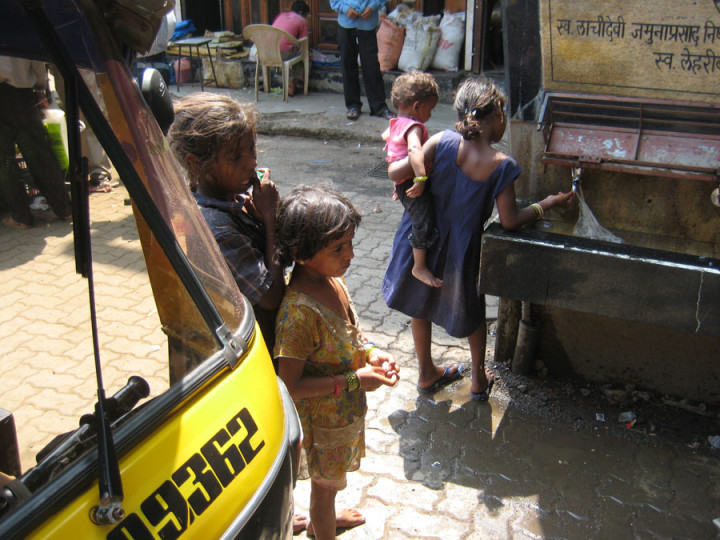The ‘Aid Industry’ – a few home truths – rebuffs to an Open Letter ‘to The Media re Aid Industry’
BigDog says (April 27, 2015) – A wonderful shot across the media bow sir. Now, from a lad who’s worked 18 years as journo and 18 years as so called “aid worker.”
1. Don’t put all news outlets or reporters in one (bag) blog.
2. If aid agencies use the news media to help raise all those ambulance chasing funds, you better damn well make sure it’s spent well. i.e Haiti vs DRC, Japan earthquake/tsunami vs Burma typhoon, Kosovo vs Sierra Leone/Liberia, etc. Dear god; Haiti in itself should be grounds for criminal proceedings against a whack of aid agencies. And Nepal has blown Vanuatu off the stage.
3. Please do tell us how you spend it. How much goes to actual aid for people, as in on-the-ground assistance. How much is the real cost of overhead? How much goes to questionable things and programs that die in the blue sky or have very little to do with actual impact in assistance? I saw a FB pic today of aid workers in orange vests, a whole whack of them on computers in some makeshift space in Nepal saving people one e-mail at a time. Try using that image for the fund raising ads.
4. Please provide proof that the giant gaggle of aid agencies responding to Nepal will NOT duplicate efforts and services, or add pressure to an already damaged environment by flying in hundreds of do-gooders, or confuse the hell out of the locals (and the local office) with their matrices, logos, photographers, and gas sucking land cruisers.
5. If you do good work, it will be covered properly by some news outlets. Find out which ones. And then show them your good work.
6. And finally, don’t pick on the news media. Without them you’d have a buck 65 for all of your programs, and no slice of overhead at head office where the lattes taste so good.
It’s a game mate. Play it.
Regards
You Know Who
*****
Ender’s Shadow on April 28, 2015 commenting on the same text says:
All true but… The reality is that the Aid Industry is a competitive, publicity seeking, machine that absorbs large sums in self promotion. This is probably inevitable, but the competition between NGOs to be the first on the ground in order to attract the funds is a reality that you need to admit to. Similarly the issue of income generation costs (advertising, marketing etc) is painful. It’s a dirty secret which the industry prefers to duck – though given the inability of the wider population to think rationally, there may be no alternative. Similarly the reality of paying local leaders to enable aid to get through to those in need is a difficult reality which is usually hidden.
The choice of hotels, (costs per night) and vehicles (you have reputation for always being in SUVs – which may be appropriate for trips beyond the city but…) needs to be made more transparent. What is the daily expenses allowance for your people? How does it compare with the average wage of the locals? Do you need as many ex-pats? Is that sort of data published by your agency in retrospect about projects which it is presently involved in?
The Aid Industry has a reputation for employing expensive ex-pat consultants to prepare reports which are never actually acted on. This week’s Thinking Allowed
http://www.bbc.co.uk/programmes/b05r3z43
refers to the multitude of reports that have been generated in West Africa over the push factors leading to young men risking everything to get to Europe. Of course it’s not ‘YOUR’ fault – but it’s a feature of the industry which pays your wages.
Which of course comes to the nub of the matter. The choice has long been made by charities to pay ‘market rates’ for the skills that they need in order to run their organisations efficiently. Yet such market rates result in wages far above the UK average being paid to many employed in the industry, let alone those paid to locals. It smells bad.
Having said all this, I accept much of the weight of this post. I hope the suggestions for greater transparency are helpful – though perhaps the reality is that given that journalists make their reputation from stirring up a storm of criticism over rational but emotionally challenging decisions, you are always on a loser. In the context of the perception that the Third World is always demanding more money, but with little effective publicity about what is being achieved, we are dependent on a sense of guilt to ensure contributions continue to flow (‘how dare you suggest we should cut the Foreign Aid budget…’) That your self interest – as employees of an industry that is dependent on this flow – aligns so blatantly with more acceptable motives, makes your position inherently problematic. Given the blatant failures of foreign aid in the past (where did the corrupt politicians get the money to put into their foreign bank accounts?, socialism good, capitalism bad), asking for faith despite that is a big ask. We want to believe – but you need to understand the roots of our scepticism.
For original and other follow-ups see:
https://aidspeak.wordpress.com/2015/04/27/open-letter-to-the-media-re-nepal-earthquake/










